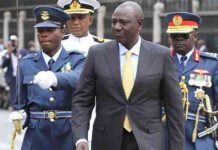Jens Haas still remembers the first time he suspected his schoolmate Jurgen Klopp had the mind of a football manager. Moments later, the commentator confirmed that Klopp’s suggested switches were being made.
Klopp’s school days in the Black Forest offer the first clues as to how he grew up to become the ultimate modern football manager.
He is revered at Mainz, where he went from player to head coach overnight and took the club into the Bundesliga for the first time;
Equally at ease with players, fans, executives and journalists, this smiling, gesticulating, bear-hugging coach seems to embody these clubs whose supporters demand an emotional investment from the man in control of their dreams.

There’s plenty more on Klopp’s personality and methods to come as we speak to some of the key figures in his journey to Anfield.
A short stroll along the river’s grassy banks, where the boys used to ride their bikes, takes you to Klopp’s childhood home, a large white-fronted house where his mother still lives, opposite the shiny new town hall and less than a corner kick away from the primary school that Klopp and Jens attended.
It is here, among the hills of Swabia – a land of cuckoo clocks, traditional costumes and hearty foods in south-west Germany – that Klopp developed his sense of freedom, a far cry from the industry and intensity of Mainz, Dortmund or Liverpool.
Klopp has two older sisters who he says were like second mothers to him, but it was his father Norbert – a travelling salesman and former amateur goalkeeper – who encouraged him to take up sport.
“Norbert had a big influence on him, he shaped him,” recalls Klopp’s first coach Ulrich Rath, who founded the Glatten Under-11s team in 1972 so that his two sons Ingo and Harti could play for a team alongside Klopp and Jens.

“It’s important to know that Norbert Klopp wasn’t born here in Glatten.
Klopp was a midfielder and captain for SV Glatten’s youth teams until he switched in his late teens to TuS Ergenzingen, a bigger team in a town 15 miles away.
The pitch where Klopp used to play has tall pine trees along one touchline and a stream along the other, from which Haas remembers retrieving many a stray ball.
In 1981, matches moved across the village to a new sports club, where the yellow and black colours of the local team are an uncanny match for those of Borussia Dortmund. A photo of Klopp in his Dortmund prime, signed and dedicated to the people of his home town, sits proudly among the other trophies and memorabilia.
This was also the venue for a celebration to honour the village’s most famous son when Klopp led Dortmund to the Bundesliga title in 2011.
As the cheering and chanting subsided, Klopp went on stage to make a speech before mingling with the people of his childhood home.
“It was amazing,” says Haas, over a local wheat beer in Glatten’s nearest thing to a sports bar, a smokey wooden den with TV screens where the local bikers’ club have taken up residence for the afternoon.
Rath rarely sees Klopp these days but becomes emotional when he recalls a surprise phone call from his former pupil on his 75th birthday.
Short presentational grey line
After leaving Glatten, Klopp played for several amateur clubs, including Rot-Weiss Frankfurt, while studying for a degree in sports science at the city’s university.

In 1990, at the age of 23, he moved 30 miles west to sign a semi-professional contract with second division team Mainz 05, under the watchful gaze of club captain Michael Schumacher.
“Klopp was a typical student at this time, in both looks and personality,” laughs the 62-year-old, sitting in a corporate suite at Mainz’s new 34,000-seater stadium, a gleaming symbol of the club’s dramatic rise under Klopp’s management.
Life on the pitch was to prove rather more traumatic for Klopp, who has always confessed to having second division legs but a first division brain. I remember after a game we were sitting in the hydro-massage pool and Klopp said to me ‘What can I do?
A switch to defence under the tutelage of influential coach Wolfgang Frank turned the 6ft 4in Klopp into a success at Mainz, where he played 325 games in a decade-long career.
“The situation was that we’d gone through three managers in quick succession,” says the affable Strutz as he looks out across the pitch at the creaking Bruchweg Stadium, Mainz’s home during Klopp’s time as player and coach which now serves as their training ground.

“Jurgen Klopp was full of passion, a normal man with a special personality. Mainz beat Duisburg 1-0 in Klopp’s first match and won six of their first seven games to pull clear of the relegation zone.
While lesser men might have cracked, it was the way Klopp galvanised the club and the city that so impressed Strutz.
As 15,000 fans gathered in front of the theatre in Mainz’s main square, Klopp spoke from the heart.
Mainz spent three heady seasons in the Bundesliga, ample time for Klopp’s tactical acumen and infectious charm to make an impression on one of the most powerful men in German football.
“When you had to play against Mainz, on the one side the players were not very good, but on the other side it was so difficult to beat them because they had a lot of spirit,” says Hans-Joachim Watzke, the chief executive of Borussia Dortmund.
After more tears as he said farewell to the fans in Mainz’s main square, Klopp joined Dortmund in 2008 and immediately formed a close bond with the club’s impassioned ‘Yellow Wall’ of fans at their 80,000-capacity Westfalenstadoin.

Playing his trademark brand of “heavy metal” football while screaming and gesturing from the outer reaches of his technical area, Klopp turned a struggling Dortmund side into one of European football’s most thrilling sights, storming to the Bundesliga title in 2011 and following it up with the league and cup double in 2012.
Klopp’s superstar status is encapsulated in helicopter camera footage of the culmination of Dortmund’s title-winning parade in 2011. With the newly-penned ‘Kloppo du Popstar’ anthem blasting out from the speakers, Klopp emerges through a cloud of smoke, dances onto stage in aviator shades, boots a ball into the crowd and waves to every adoring face.
Graf describes holidaying with Jurgen Klopp as “the biggest fun you can have”. But Jurgen Klopp’s talents don’t end there.
If ever a Borussia Dortmund sponsor was wavering about renewing their deal, they would receive a personal call from Klopp himself.
“Jurgen Klopp is a marketing man’s dream,” says Carsten Cramer, who was head of marketing during Klopp’s seven years at the club and is now managing director.
Five years on from another tearful parting of the ways, Cramer and Watzke remain close friends with Klopp and were guests in Kiev and Madrid for both of Liverpool’s Champions League finals under the German.
















